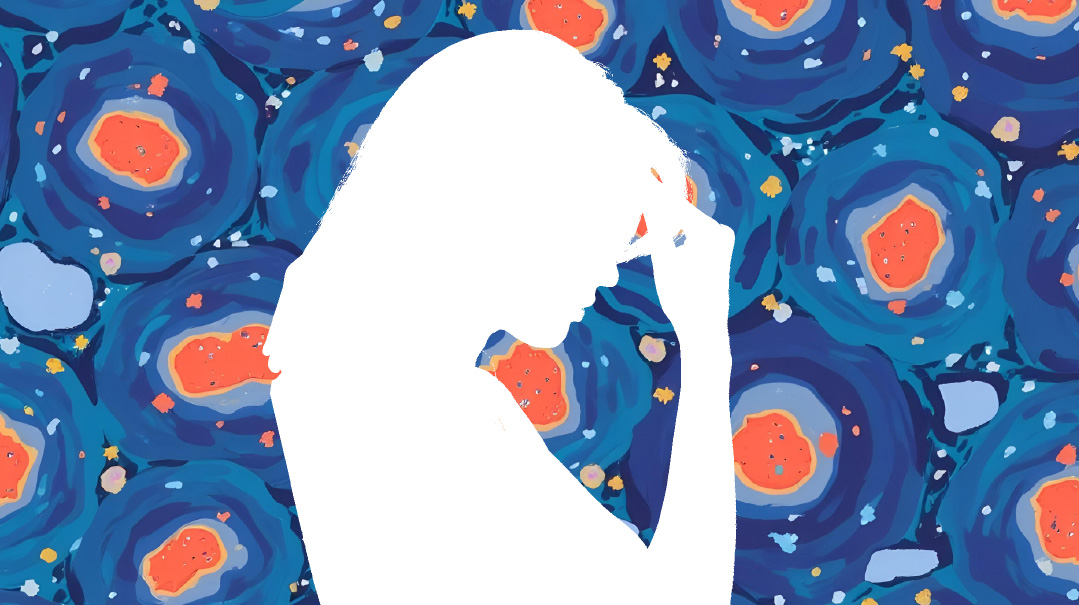Struggling Child
| April 30, 2024“Every time you say, ‘How is Chaya Leah doing?’ you’re actually causing me even greater pain”
I’M so glad to be at this chasunah. It’s hard for me to leave my house right now, while my family life is in upheaval. It took tremendous effort to get into my heels, my sheitel, and paint a smile with my lipstick.
But once I enter the wedding hall, I relax a little, because it is really nice to be at a simchah. I enjoy the sesame chicken, schmoozing with my cousins, the beat of the music… I try to curb the urge to check the phone in my jeweled clutch, see if there are any missed calls or urgent messages.
That’s the way my life has been the last few months.
At work, like at this wedding, I keep my phone on silent. But I constantly check it, because I know that at any minute there will be a call from the school secretary or a text from the guidance counselor. Chaya Leah is having a meltdown, can I please pick her up? And there goes my day.
My daughter Chaya Leah, 14, is struggling and in deep pain. Her emotions, her behaviors, her downward spiral in Yiddishkeit over the past few months have wreaked havoc on my family. We’re in terrible tzaar for Chaya Leah. We’re struggling to maintain a semblance of calm for the rest of our six kids. And we’re learning how to cope with this nisayon ourselves.
At home, it’s chaos. Picture the scene: I try to unclench my teeth while urging my five-year-old to finish his fish sticks right now, because Chaya Leah has an appointment at five thirty. A most inconvenient time, but the only slot that was available. I sling supper at the kids and hope that some nutrition gets into their systems, then pile them all into the car. And there goes my evening.
At night, I want to take a few minutes to catch up with my husband. We’ve been ships passing in the night; he’s running to Maariv while I’m doing baths, he comes home from night seder and I’m out with Chaya Leah shopping for the prize that she needs to make the next week work for her. I’m exhausted, but I really need quality time with him. Chaya Leah is on edge, and the only thing that will calm her is if my husband takes her for a long walk, which leaves me a few minutes alone to clean up my kitchen and then collapse into bed. And there goes my night.
Of course, Chaya Leah is on my mind at every moment. I think, worry, and daven for her from the time I wake up until I toss and turn through another sleepless night.
I wouldn’t be getting through this nisayon without the support of my friends. One friend dropped off an iced coffee and a Danish, “just because.” It was an understated way of showing that she cares about me, without being intrusive. Another offered to take my other kids out for the day. This was a big help, to give them some time and attention that they needed. Sometimes, I’ll get a text, “I’m thinking of you.” This is a nice reminder that people care, without being intrusive.
An old friend, Shiffy, must have heard about Chaya Leah — this kind of news seems to travel fast. Shiffy called to give me chizuk, telling me, “Don’t worry Basya, she’ll come back. You’ll see.”
I’m navigating a new and terrifying world; I’m doing the best I can in a very difficult situation. How can she make this promise? How can she presume to know Chaya Leah’s future?
“Shiffy means well,” I mutter to myself. “Everyone means well.” They say she’ll come back because they think it will give me hope. They don’t understand that my inner world is now so darkly jumbled, the hope of a happy ending is impossible to imagine.
Maybe Shiffy thinks that by promising me something that she has no right to promise, this will help my bitachon.
But my bitachon work isn’t imaging a fairy tale ending where Chaya Leah “comes back” and we all live happily ever after. My bitachon work is connecting to Hashem as we are right now, and seeking His Hashgachah. Digging deep within myself to become the mother she needs me to be. Shiffy telling me that Chaya Leah will come back sounds either like an empty promise or the denial of my current reality. Or both.
I don’t wish this nisayon on anyone.
But baruch Hashem, things can change. And they did.
Chaya Leah did come back. I don’t call it “back.” She came forward. With a lot of siyata d’Shmaya, the help of some amazing organizations, wonderful therapists, and a ton of inner work, Chaya Leah is now emotionally stable and spiritually healthy. We have a close and loving relationship, which I thank Hashem for every day. Chaya Leah has remade herself into a wonderful new version of the person she’s meant to be. I have been remade into a new kind of mother, a changed person. There is no coming back from this experience. It changed and reshaped me.
A few years ago, Chaya Leah was a struggling teen, and now she’s a thinker, someone who is responsible, has values she sticks to, and relationships she’s constantly building. She’s someone who is proud of how far she got and understands that she’s capable of going so much farther.
I couldn’t be more proud.
Please read the room:
There’s a time and place for sharing vulnerabilities. At a social occasion, at PTA, at the dentist office, these are all inappropriate settings for me to share with you my response to, “How is Chaya Leah doing?” When I’m ready to share, it will most likely be after a meaningful connection, and a real conversation. Not if we happen to bump into each other at Target.
I know you’re trying to show that you care. I know that you think this is being considerate. But every time you say, “How is Chaya Leah doing?” you’re actually causing me even greater pain.
Don’t presume I want to discuss her situation.
Please do say:
“Hi, it’s great to see you. I love your necklace. I can’t believe you came all the way in. How’s it going at work? How old is your baby now?”
Treat me like a regular, normal person.
Please don’t say:
“We’re davening for you.”
Of course, I appreciate your tefillos, and we need siyata d’Shmaya. But I don’t want to hear about it. Every time you mention you’re davening for Chaya Leah, it’s a stabbing reminder of our pain. Please daven for Chaya Leah, and please, please, don’t tell me about it.
Please consider:
I’ve been forced into the position of “taker” and it’s very uncomfortable. I needed to take favors, and accept chesed girls, and at one point, we had to fundraise for special programs.
I’m very grateful for all the chesed we received. But if you come over and tell me that you helped to arrange rides, or that you contributed one thousand dollars, it’s extremely demeaning. Why do I have to know? Anything you did to help should be between you and Hashem. If you’re telling me about it because you want recognition, it’s better not to do it at all.
Chaya Leah says:
Now that I’m past this stage of my life, please, stop gazing soulfully into my eyes, squeezing my hand to tell me how happy I look. Stop tsking in amazement when you see me. I know that you really care, so instead of viewing me as my struggles from yesterday, can you choose to see me as who I can be tomorrow, because I’m working so hard to build that? The next time you see me, can you just ask, “Hi, how are ya?”
(Originally featured in Family First, Issue 891)
Oops! We could not locate your form.





